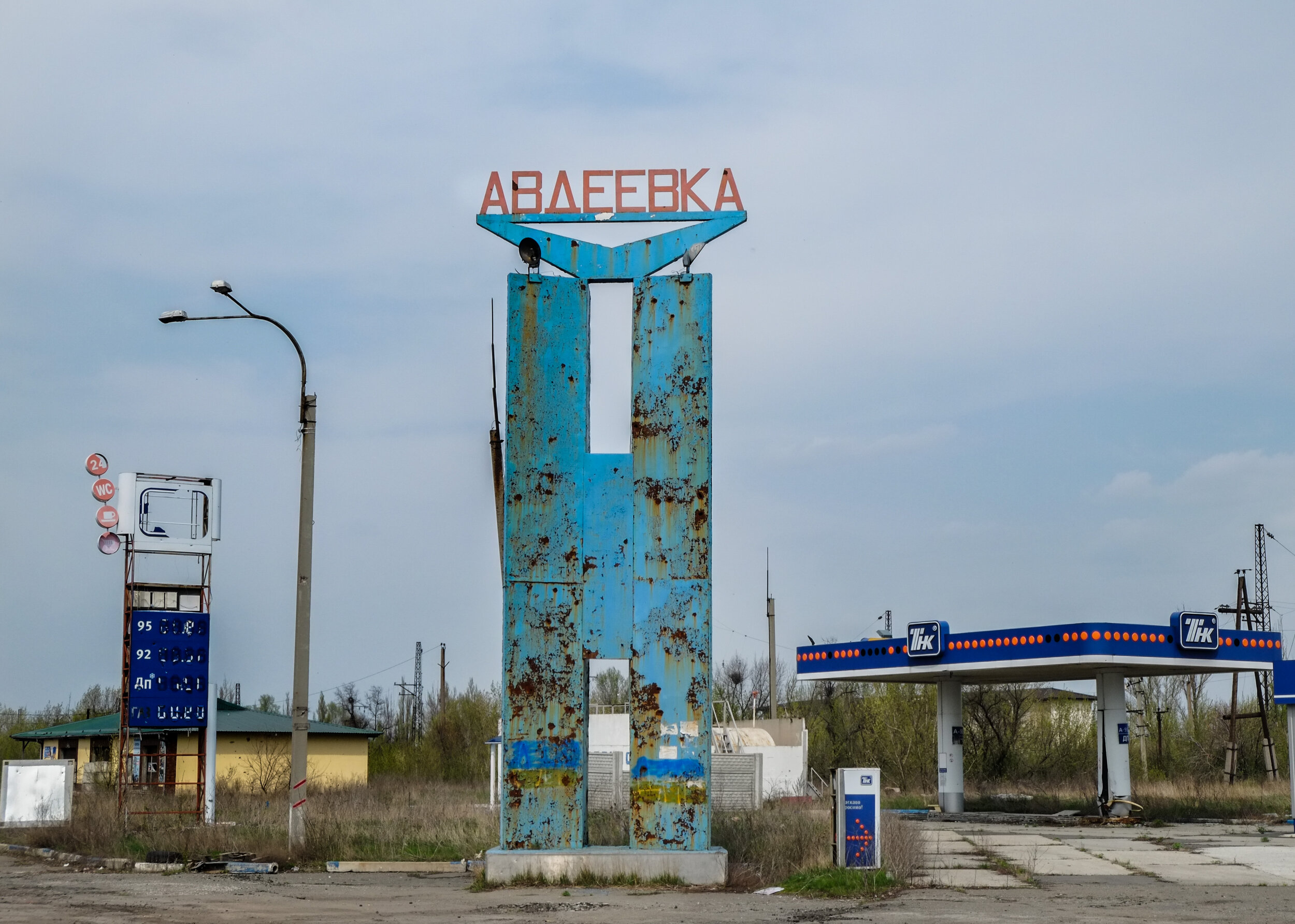
Adiivka- on the Ukrainian front
Avdiivka, a city of 35,000 people only a few miles away Russian-occupied Donetsk, has been the primary locus of conflict between the joined Russian-separatist forces and Ukrainian forces
Scroll ↓
The soldiers close the blinds, but continue their conversation, unfazed by the firing on their position. Instead, as they sit, eat and talk, their anger and energy are directed towards the politicians in Kyiv who, these soldiers feel, have betrayed them.
While the frontline in the east is clear, these men see the conflict as having another front: Kyiv. Mobilized and ordered to the front by the Ukrainian government, the citizens-cum-soldiers of the 58th brigade have had an intimate relationship with Ukraine’s new government.
They are acutely aware of the corruption that deprives them of materiel.
They feel the lack of reform that has plagued politics and the upper echelons of the military, leaving them with what many soldiers believe is poor leadership.
And many note the lack of political resolve to fix the political and military problems that have left them sitting on the frontline.
The resentment on the frontline is directed as much towards the establishment in Kyiv as it is to separatists and Russians. As these men are demobilized, their indignation will be an important bellwether for the evolving sentiments of civil society.
Ukrainian soldiers feel abandoned at the war front.
Despite Western efforts to modernize the Ukrainian army, it remains dangerously uncoordinated, undertrained and under-resourced.
“We don’t want to continue to help, because the government doesn’t want to help,” said Dima, of the 58th Battalion. Many soldiers requested that only their first name or nom de guerre be used in order to protect their security.
Few officers come to the front; troops still rely on outdated weapons and equipment; communication on the front line is poor and friendly fire is common; soldiers complain about not being paid properly; and, as in the beginning of the war, food, cigarettes, and even uniforms are still being supplied by volunteers.
“The commander never comes out here,” said Dima. “We’re lucky if our own guys don’t shoot us.”Despite integrating volunteer battalions and managing to hold the front line by itself, the Ukrainian army is still struggling.
“Very often the Ukrainian army asks us (the Right Sector) for help,” claimed a fighter with the nom de guerre Meron, who is a former lieutenant in the Ukrainian army and a history professor in Kyiv. Meron is now fighting in Avdiivka with the Right Sector, an ultranationalist organization.
The Soviet legacy still haunts the Ukrainian armed forces Meron said, with military training, supplies, and leadership all inadequate. Rather than fight with a Ukrainian army plagued with problems in command and a lack of motivation, Meron chose last month to fight with Right Sector. It was the only way he could see of fighting for Ukraine.
“We have the word ‘army’,” said Marteen, also fighting with Right Sector in Avdiivka, but its performance is so poor and its lack of professionalism so great that “we don’t have an army (in practice).”
Most of the soldiers currently fighting here with the Ukrainian army were mobilized between 12 and 15 months ago, and many are now being demobilized after finishing their service period.
Approximately 1,000 of the soldiers in the 58th Brigade currently fighting in Avdiivka are now leaving, while across the frontline, the figure for demobilization is 45,000.
Dissatisfaction with the political and military establishment coupled with the intensity of the fighting in Avdiivka mean that morale is low and finding new troops is difficult.
“There are not a lot of people who want to be here, 5 percent maybe,” said Lieutenant Denys Naumov. In one group of 30 new recruits, he claimed, 23 left the army immediately after being mobilized, seven came to the front, and only three stayed.
While drafted troops feel let down by an anachronistic army slow to evolve, they are also angry at the lack of political progress in Kyiv.
“We have been upset for a long time,” said Oleg from his position on the front line. He did not want to be identified for fear of retribution against him by superior officers.
Corruption continues largely unabated under President Petro Poroshenko, and change coming from within the political establishment looks unlikely. There is growing political dissatisfaction, disappointment, and disillusionment throughout the ranks.
“Politics at the moment is the worst thing,” Juba, a 46-year old former airline executive now fighting on the frontline, said. He also didn’t want to be identified out of fear of retribution. “It changes little by little (but) too slowly.”
As these soldiers are demobilized and return home, the frustration endemic across the frontline has the power to change into political activism. “It’s bad that nothing is happening in Kyiv,” said Genia of the 58th Battalion. “When we come back home we will start to change things.”
Feeling betrayed by their government, abandoned by their officers, and neglected by their army, these disgruntled soldiers think they may become a catalyst for change in Ukraine.
“I think some day another Maidan (revolution) will happen and we will change something in this country,” said one lieutenant. “The war has changed people’s minds.”
“People who were at the war will understand the price of peace,” Juba said. “As soon as we go home, we will do everything so that our country will do better.”







